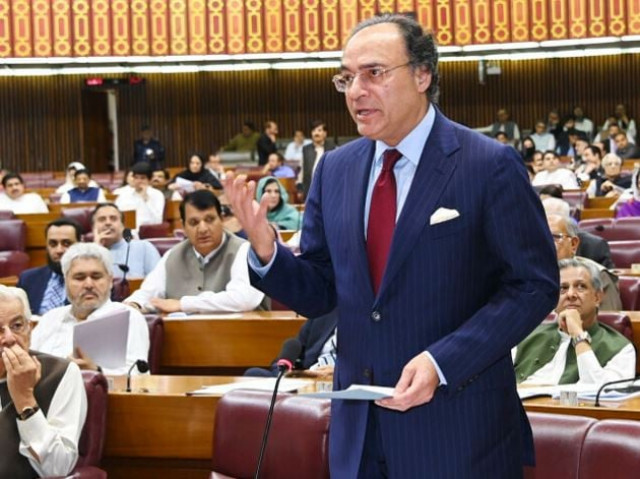National Assembly approves budget 2024-25 amidst opposition criticism
FM Aurangzaib vows to boost tax-to-GDP ratio to 13%, up from 9.5%

The National Assembly on Friday approved the federal budget of Rs18,877 billion for the fiscal year 2024-25 following the completion of the approval process.
During the session, all opposition amendments were rejected unanimously.
Prime Minister Shehbaz Sharif, Pakistan Peoples Party (PPP) Chairman Bilawal Bhutto-Zardari, and Asifa Bhutto-Zardari participated in the proceedings, where the opposition criticised the budget, labelling it as IMF-driven and harmful to the public.
Regarding the Petroleum Development Levy reduction, the PPP retracted its amendments, while the opposition's amendments were dismissed by a vote count in the Assembly. Opposition amendments concerning the levy were voted down in the Assembly, with 170 members opposing and 84 supporting the reduction.
The prime minister responded to criticisms from PTI Chairman Barrister Gohar and former Speaker of the National Assembly Asad Qaiser regarding project allocations and fund distribution in Khyber Pakhtunkhwa.
Member of the Sunni Ittehad Council Junaid Akbar Khan criticized the premier, stating that if their government were to come to power, they would show him the reality of being in jail.
Additionally, amendments were passed to empower FBR officers for sales tax audits, allowing them to access necessary records without demanding data older than six years.
To strengthen tax enforcement, the FBR will establish a Tax Fraud Investigation Wing in Wang, focusing on preventing tax evasion and fraud, with dedicated legal and accounting units.
Minister of Finance Muhamamd Aurangzaib termed the budget 2024-25 as growth budget and said it was based on a well-thought-out strategy to boost the economic growth.
He said that the budget for the next fiscal year was aimed at narrowing the fiscal deficit by expanding the government’s revenues and cutting unnecessary expenditures.
Muhammad Aurangzaib reiterated the government’s commitment to increasing the tax-to-GDP ratio to 13 percent, which currently stands at a low 9.5 percent.
He said that the country had achieved macroeconomic stability. He highlighted that the economic indicators, including the current account, fiscal deficit, inflation, and foreign exchange reserves, were stable and under control.
He outlined the government’s plan to continue this economic stability into the next fiscal year, aiming to lead the country towards sustainable economic growth.
He also called for reconstructing and digitizing the Federal Board of Revenue (FBR) to ensure a high GDP target. He said that the concept of non-filers would be eliminated from the tax system, making it mandatory for everyone to pay taxes.
The minister expressed the government’s resolve to curb tax evasion and expand the tax net, particularly targeting retailers and the real estate sector.
He said that the current account deficit had decreased, the fiscal deficit was under control, and the country had foreign reserves of $9 billion, providing an import cover for two months.
He highlighted a significant reduction in inflation, from 38 percent to 11 percent, and sustained food inflation at two percent. He said that no tax had been imposed on solar energy.
The Finance Minister said that cardiology stents, surgical items, books, printing materials, and items in the FATA and PATA regions had been granted tax exemptions.
He said that tax exemptions could not be granted for packaged milk that did not meet quality standards. He said that these tax exemptions for the education and health sectors were provided despite the challenging economic conditions.
Opposition leader in the National Assembly, Omar Ayub, along with Pakistan Tehreek-e-Insaf (PTI) Chairman Gohar Ali Khan and Sunni Ittehad Council leader Ali Muhammad, said relevant stakeholders were not taken on board during the formulation of the bill.
Omar Ayub said: “The finance bill fails to address the critical economic challenges faced by the country and has been drafted without adequate consultation with key stakeholders.”
Gohar Ali Khan said: “This bill is not reflective of the people’s aspirations or the country’s economic realities.”



















COMMENTS
Comments are moderated and generally will be posted if they are on-topic and not abusive.
For more information, please see our Comments FAQ